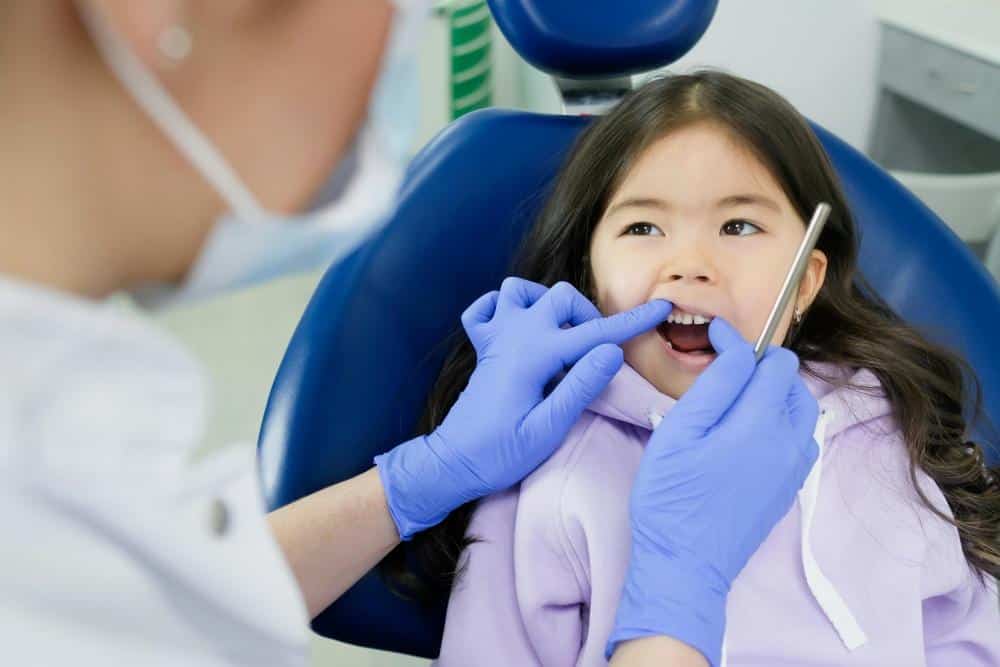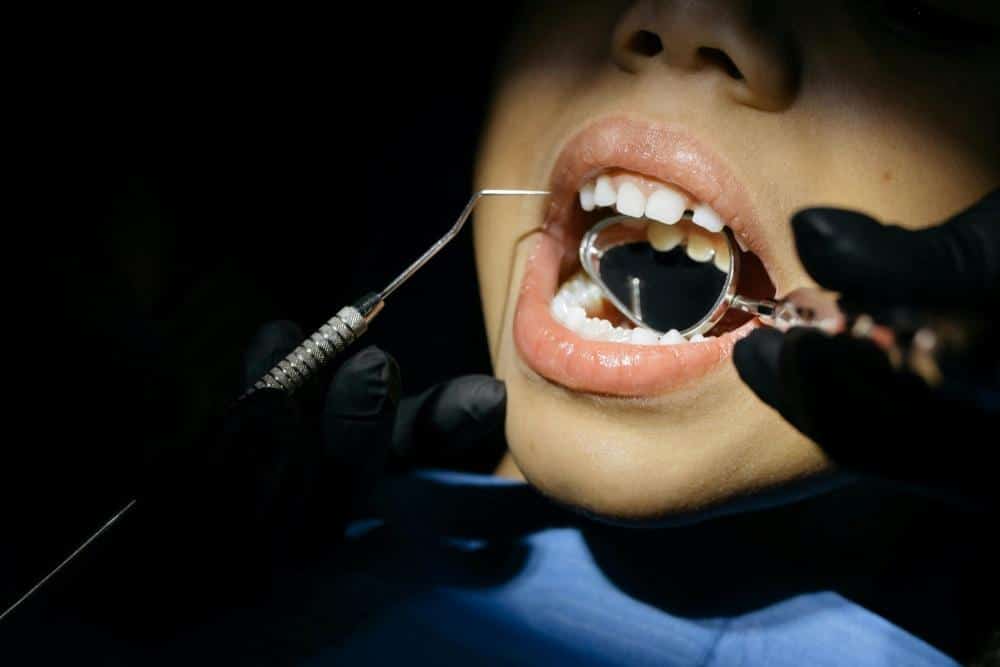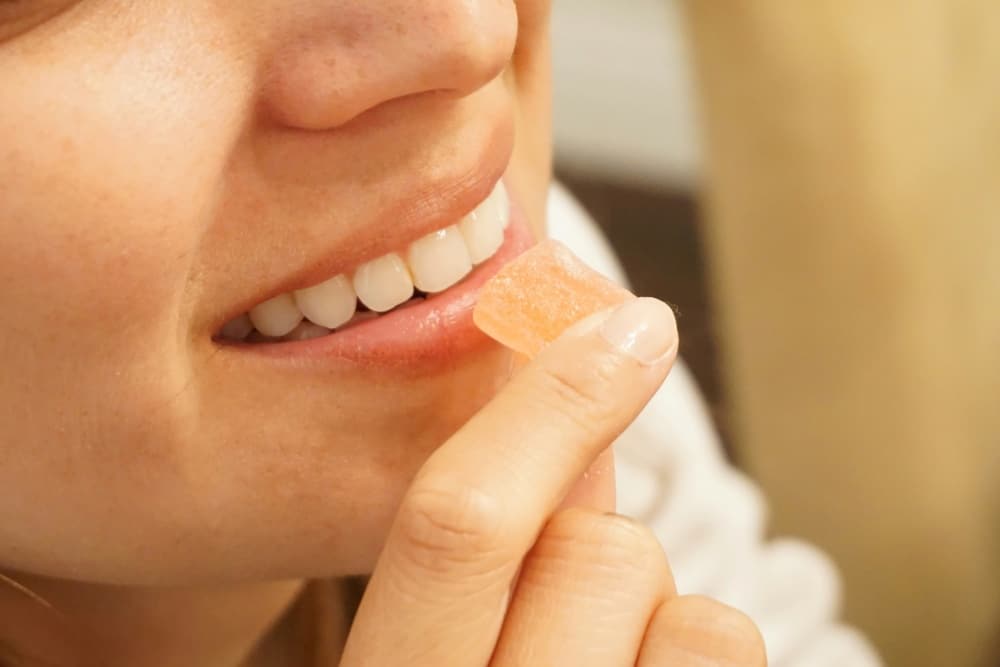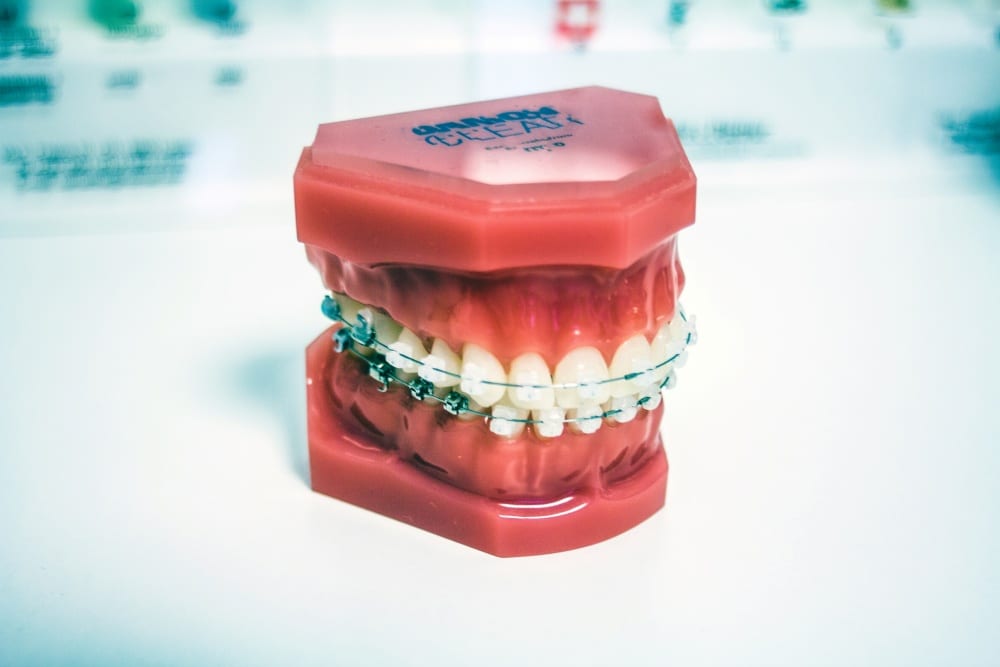
Kids Tooth Decay: Causes, Signs, and Prevention
In Singapore, an unsettling trend has emerged: by the time children reach kindergarten, one out of every two has developed tooth decay.
This alarming statistic, brought to light in an article by The Straits Times, reflects a broader issue that transcends basic oral hygiene, pointing to an urgent need to educate and implement preventative measures among parents and guardians. This is especially so since tooth decay in young kids can have lasting effects beyond just their early years, influencing their overall health and development. As such, understanding the causes and signs of early tooth decay is crucial for preventing its onset and ensuring the well-being of future generations.
Understanding Early Childhood Caries (ECC)
Early Childhood Caries refers to a form of tooth decay that primarily affects children under six years old.
Recognised by dental professionals as a significant health issue, ECC manifests through various symptoms such as decayed teeth, noticeable tooth loss due to decay, and the presence of filled cavities in the primary teeth of young children.
Typically developing over months, ECC often begins subtly, manifesting as a faint, white, chalky band at the gum line. And without timely intervention, these early signs can progress into more severe decay, leading to cavities that penetrate deep into the tooth, causing significant dental damage.
ECC vs. "Baby Bottle Tooth Decay"
Originally, the term “baby bottle tooth decay” highlighted the decay associated with prolonged exposure to the sugars in milk or juice from bottle feeding, particularly when babies are put to bed with a bottle.
However, ECC is now understood to stem from multiple factors, including genetics, feeding practices, and the care of a child’s teeth. It’s a condition that can affect any young child and requires comprehensive care and preventive strategies beyond simply modifying bottle use.
So, while sometimes called “baby bottle tooth decay,” the term Early Childhood Caries encompasses a broader spectrum of dental issues beyond those caused by bottle feeding.
Factors Contributing to Tooth Decay in Children
Tooth decay in children is largely driven by how bacteria in the mouth interact with sugar from foods and drinks. These bacteria convert sugars into acids that attack the enamel, the tooth’s protective outer layer.
Normally, saliva helps to neutralise these acids and repair enamel, but when the balance tips towards more acid damage, cavities can form.
This imbalance can lead to early childhood caries through:
- Sugary Foods and Drinks: Constant exposure to sugars from foods like candy or sweetened beverages allows oral bacteria to produce more acid.
- Bottle Feeding at Night: Putting babies to bed with a bottle containing sweetened fluids like milk, which can cause it to pool around the teeth, feeding decay-causing bacteria.
- Inadequate Oral Hygiene: Without regular and proper dental care, such as brushing and flossing, plaque builds up and persists on the teeth, leading to decay over time.
- Frequent Snacking: Frequent consumption of snacks, particularly sugary ones, can provide a constant food source for bacteria, increasing the risk of tooth decay.
How Tooth Decay Develops in Young Children
Tooth decay in young children often starts subtly, initially appearing as faint white spots on the enamel near the gum line, indicating mineral loss. If unchecked, these spots can evolve into darker discolourations—brown or black—which signal more severe decay, leading to cavities. This progression is particularly common in the upper front baby teeth, which are most exposed to sugars from feeding practices.
The connection between tooth decay and prolonged bottle feeding lies in how the liquid tends to pool around the front teeth when children sleep with a bottle, as mentioned. This is because sugary substances like milk, formula, or juice interact with oral bacteria to produce harmful acids that attack tooth enamel. And as saliva production decreases during sleep, its counteractive and protective effect is diminished, allowing these acids to cause more damage.
Additionally, frequent consumption of sugary drinks, including fruit juices and soft drinks, exacerbates this problem, further encouraging the development of ECC.
Recognising the Signs of Tooth Decay
Detecting early childhood caries in its initial stages can be challenging, as the symptoms are not always easily visible.
However, parents and caregivers should still look for specific signs which indicate the progression of tooth decay. So, how does tooth decay generally look like?:
- White Band Near the Gum Line: An early sign of ECC, a faint white line along the gum line may go unnoticed initially. This is the enamel beginning to demineralise.
- Yellow, Brown, or Black Band Near the Gum Line: As decay progresses, this discolouration becomes more pronounced. What starts as a yellowish colour can deepen to brown or black as the tooth decay worsens.
- Brownish-Black Stumps: In advanced stages, what were once minor discolourations can result in significant decay, leaving behind what resembles brownish-black stumps of the original teeth.
The Consequences of Untreated Tooth Decay
Many parents may dismiss the importance of caring for baby teeth, thinking, “Baby teeth fall out, right?” However, it’s crucial to address early childhood caries promptly despite the temporary nature of baby teeth.
Why? Because the impact of untreated ECC extends beyond the immediate discomfort to more severe, long-lasting issues. Some of these include:
- Pain and Sensitivity: Neglected tooth decay often leads to significant discomfort, making daily activities like eating and brushing painful.
- Premature Tooth Loss: Premature loss of primary teeth can impact the alignment of permanent teeth, potentially requiring orthodontic treatment later.
- Serious Infections: Untreated decay can cause infections that might spread beyond the mouth, posing serious health risks.
- Challenges with Eating and Speaking: Decay can severely affect a child’s ability to chew properly and articulate words clearly, impacting their nutritional intake and speech development.
- Impact on Self-Esteem: Visible tooth decay can also affect a child’s confidence, influencing their social interactions and academic performance.
Early Detection and Intervention

Catching early childhood caries during its initial stages is critical as it can often be reversed with timely dental care. Unfortunately, the early symptoms of ECC are not always obvious, and decay is frequently only identified once it has advanced to a more serious stage, necessitating extensive dental interventions.
Therefore, to prevent this, parents should make it a habit to inspect their child’s teeth regularly for any signs of decay, such as unusual discolourations or minor damage, and should not hesitate to schedule a dental appointment if they observe anything concerning. Early professional assessment can prevent minor issues from becoming major problems.
Preventing Tooth Decay in Children
Instilling good oral hygiene and healthy eating habits early in life is crucial to prevent tooth decay and cavities in children. These foundational practices help safeguard their dental health and overall well-being from infancy through the toddler years and beyond.
Promoting Healthy Eating Habits
To curb the onset of tooth decay, it’s essential to manage the feeding habits of young children:
- Post-feeding Care: Always remove the bottle or breast immediately after feeding.
- Avoid Nighttime Bottles: Never let your child go to bed with a bottle, as this could potentially lead to prolonged exposure to sugars.
- Introduce Feeding Cups: Start transitioning your child to a feeding cup around six months, moving exclusively to a cup by the age of one.
- Limit Sugary Beverages: Encourage drinking water and plain milk after the first year and avoid sugary drinks in baby bottles.
- Diverse Diet: Introduce a variety of solid foods starting at six months to ensure a balanced diet.
- Avoid Sweetening Pacifiers: Never dip dummies in sweet substances and opt for sugar-free medicines when necessary.
Establishing Good Oral Hygiene
Maintaining oral hygiene begins with the eruption of the first tooth:
- Early Cleaning: Start cleaning your baby’s teeth with a suitable infant toothbrush as soon as the first tooth appears.
- Use Appropriate Toothpaste: From 18 months to six years, use a pea-sized amount of children’s toothpaste. After six, transition to standard fluoride toothpaste.
- Regular Brushing: Brush your child’s teeth twice daily, in the morning and before bed, to reduce bacteria buildup.
- Adult Supervision: Assist your child with brushing until they can effectively do it themselves, typically around the age of eight.
Establishing these practices early helps children learn the importance of dental care and sets them up for a lifetime of healthy habits.
Regular Dental Check-Ups
Beyond establishing good oral hygiene and promoting healthy eating habits, securing regular dental check-ups is just as essential for young children.
To prevent your child’s dental conditions from worsening—such as the worrying sign of a tooth turning brown—regular evaluations by a dentist for kids are crucial. In fact, it is recommended that toddlers have their first dental visit by age two, followed by regular assessments as advised by their dentist—don’t just wait for the next school dental check.
Remember, dental caries in young children is not just a temporary issue—it can have lasting consequences.
Looking for a dentist for kids or an affordable dental clinic in Singapore? Visit Family Dental Centre today and secure your child’s dental health with expert care. Take action now to prevent future dental problems so your child can have a healthy smile and feel confident.
Sources:
https://www.straitstimes.com/singapore/about-1-in-2-children-here-has-tooth-decay-by-kindergarten-age-but-its-preventable
https://www.sgh.com.sg/news/patient-care/about-1-in-2-children-in-spore-has-tooth-decay-by-kindergarten-age-but-its-preventable

Dr Jade Lee Shin Yi
Dental Surgeon
BDS (Otago, New Zealand)
BIOGRAPHY
Dr Jade is a general dentist who graduated from the University of Otago, New Zealand. She enjoys all scopes of dentistry with special interests in orthodontics and surgery.
Dr Jade is friendly and able to communicate in English, Mandarin and Malay. she believes in patient-centred care and always provides a conducive environment for her patients. She believes that giving tender love and care to patients is essential to building a good rapport and gaining patients’ trust to provide the best possible care to her patients.
Dr Jade enjoys spending time with her loved ones and watching drama with her husband during her free time. She also enjoys singing nursery rhymes and reading storybooks to her little one.





